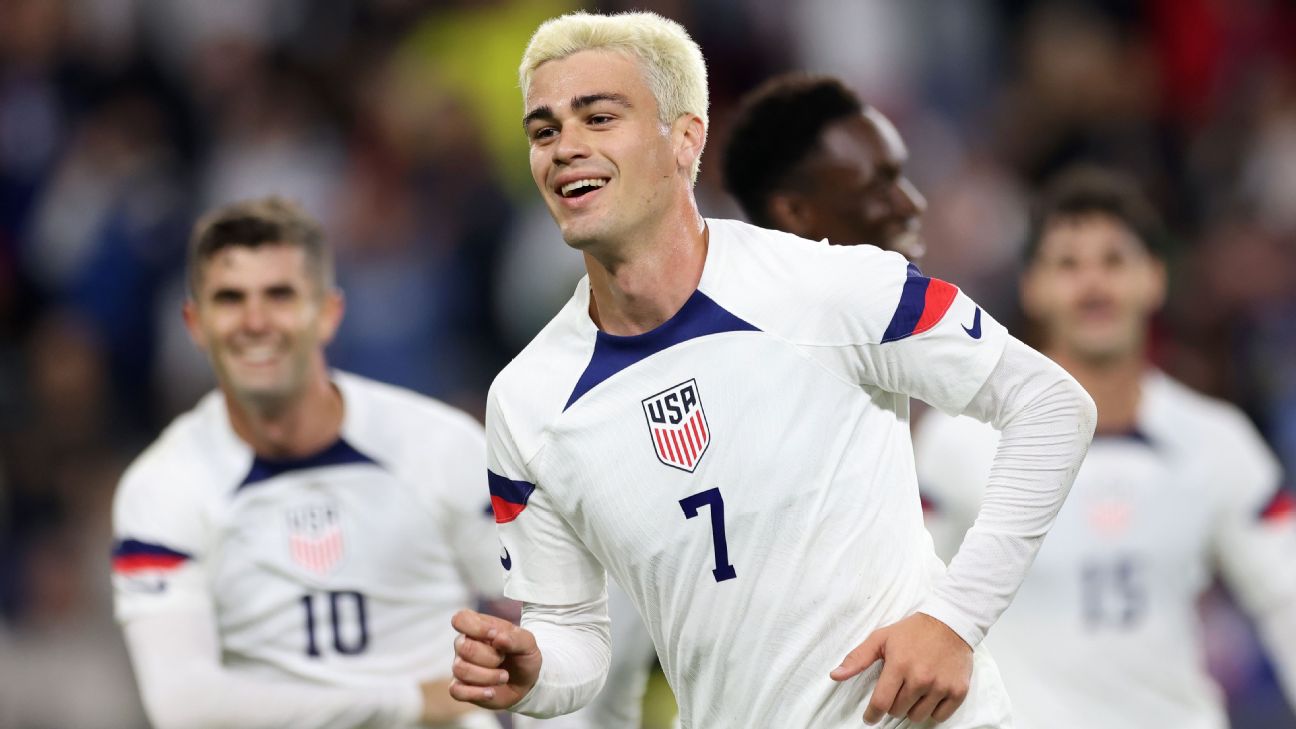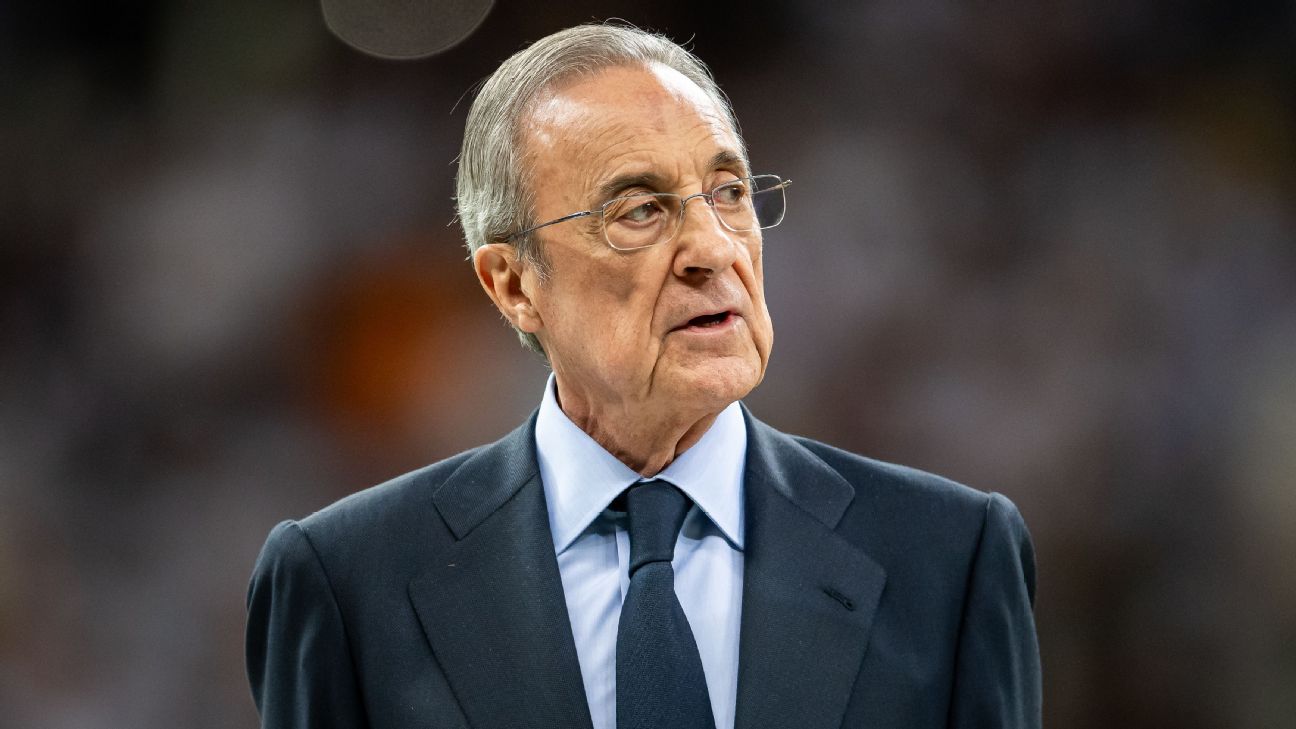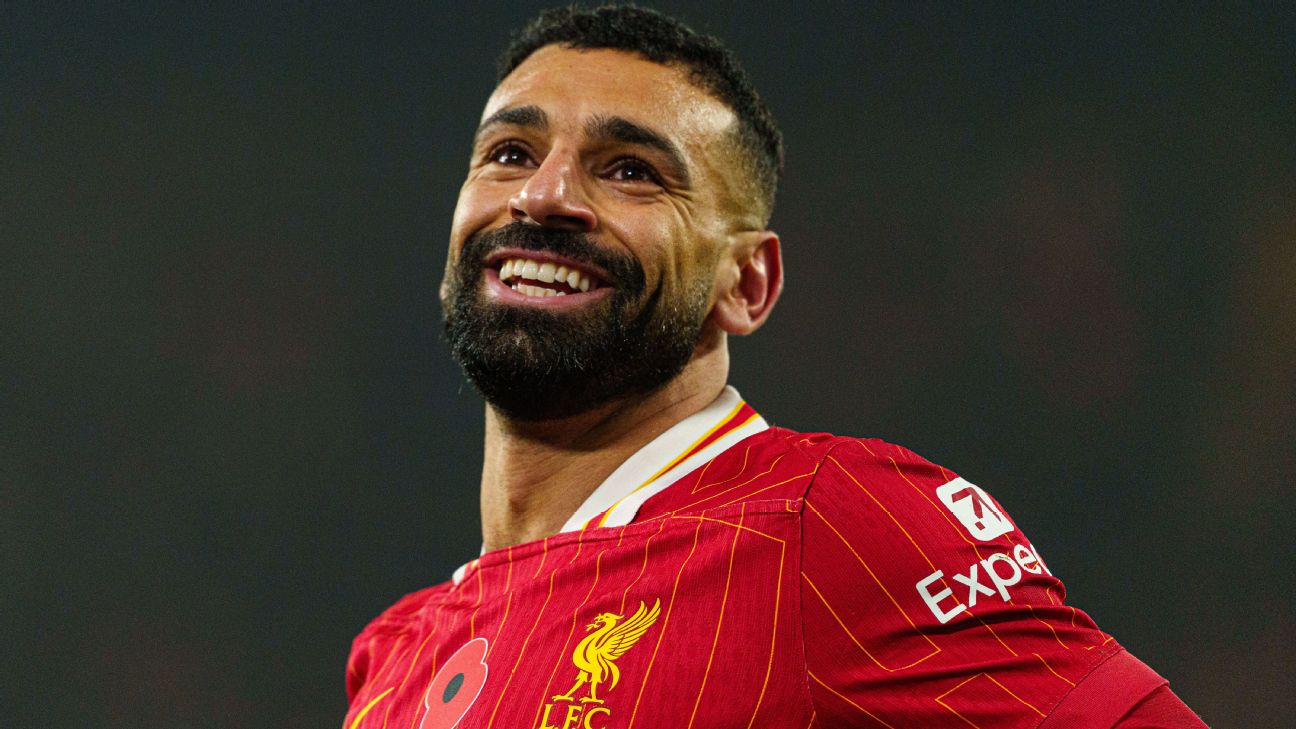After more than two years, Giovanni Reyna’s goalless drought with the United States is over.
The 20-year-old attacking midfielder bagged his first-ever international brace as the U.S. overwhelmed Ghana 4-0 on Tuesday at Geodis Park in Nashville. All four goals came in the first half with the three goal scorers — Christian Pulisic, Folarin Balogun and Reyna — exiting after 45 minutes.
For Reyna, the performance represents an important step forward, both for the U.S. and for his prospects at the club level, where he has appeared just once this season for Borussia Dortmund in the Bundesliga.
– Stream on ESPN+: LaLiga, Bundesliga & more (U.S.)
– Read on ESPN+: Projecting how USMNT stars will do at new Euro clubs
Let’s start with what it means for him in a U.S. shirt.
The past two years have been close to a worst-case scenario. That’s partly because of the expectations that accompanied his debut in a friendly against Wales as a 17-year-old in 2020. It was hard not to view him as anything other than a superstar-in-waiting. He had already broken through at Dortmund, had made an impact in the knockout stages of the UEFA Champions League and slotted right into coach Gregg Berhalter’s U.S. starting XI — a place he figured to occupy with the team for the next decade or so.
That status quo remained right up until the start of World Cup qualifying, when he got injured at El Salvador in the first of the 14-game process. Since then, it has been setback after setback. Injuries have been the primary culprit and, of course, there was the embarrassing family drama that tarnished the World Cup and contributed to Berhalter’s absence from the team for half a year. There will come a time when that saga won’t have to be rehashed but, given this was Reyna’s first camp under Berhalter since their once-close families’ very public falling out, this always figured to serve as a significant milestone.
We aren’t privy to an honest accounting of what the Berhalter-Reyna interactions were like this last week, but the on-field results were encouraging. Against Germany on Saturday, the U.S. was demonstrably better with Reyna on the field, and that was the case again vs. Ghana. With Reyna playing both games in more of a central midfield role underneath Balogun up top, the U.S. is perhaps as dangerous in the attacking third as it has ever been.
Reyna’s position with the national team has been a topic of debate since his breakthrough. Prior to the game against Germany, Berhalter had strictly used Reyna as a winger. The logic was easy to follow: It put Reyna in a place to impact the game offensively, while allowing the midfield three of Weston McKennie, Tyler Adams and Yunus Musah to play together. Except as good as that trio was at times, the combination didn’t lead to much in the attack. The team struggled to consistently create chances throughout World Cup qualifying and at the World Cup.
With Reyna floating in advanced role in midfield, all of a sudden the team has someone who can create, score and dictate the game. That element combined with Balogun’s talent at striker — with Pulisic and Timothy Weah on the wings — should solve a lot of what has plagued the U.S.
Reyna’s first goal illustrated that. Balogun was played into a dangerous area by Sergiño Dest, and his strike across the box rebounded to Reyna, who calmly smashed it home in the 10th minute. It wasn’t precision execution by any means, but the result of good things happening by applying pressure. After a penalty from Pulisic, Balogun showcased an impressive turn and finish after Weah forced a turnover. The rout was on just 22 minutes into the game.
A clever indirect free kick sequence initiated by Balogun and Pulisic from inside the box set up Reyna for his second, despite all 11 Ghanaian players posted up below the penalty spot.
The U.S. was so dominant in the first half Tuesday, it was fair to question the Black Stars’ motivation. A classic chicken-or-egg dilemma to assign credit and blame. The reality, though, was the U.S. fielded a strong, motivated lineup on home soil against a team that has more pressing fixtures ahead on the schedule.
As insightful as Reyna’s 90 minutes this window were for the national team, they also could serve as a springboard to more playing time back in Germany. There were no obvious signs of rust from his return from a foot injury he suffered with the U.S. during the Nations League in June, and the hope for Berhalter was that minutes with the U.S. — his half-time substitutions were planned — would help improve his fitness and show Reyna was again ready to contribute. There’s now hope Reyna can rekindle that trajectory in Dortmund.



